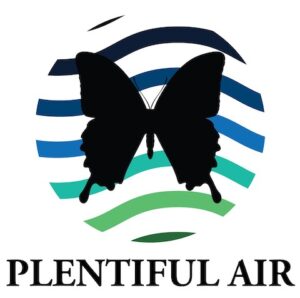Continuous Positive Airways Pressure (CPAP) is one of the most common ways to treat sleep apnea. Unfortunately, however, dry mouth is an uncomfortable side effect of using a CPAP machine. As a result, it discourages some patients from continuing their therapy.
You may experience a dry mouth after using a CPAP machine due to a mask leak, low humidity settings, non-heated air, or high air pressure. However, certain habits may also contribute to the issue, from sleeping with an open mouth to drinking water only frequently.
Although the dry mouth isn’t serious, it leads to bad breath and difficulty swallowing. Besides, a lack of saliva may also allow fungi and bacteria to grow in your mouth. We’ll address why the CPAP machine is drying out your mouth and what you can do about it.
Reasons Why Your CPAP Is Drying Your Mouth Out
According to a study, 688 sleep apnea patients use CPAP therapy to reduce the symptoms and sleep better. However, around 45% of respondents experience dry mouth after using the machine.
Here are 11 reasons you experience this bothersome side effect and possible solutions.
1. You Sleep With Your Mouth Open
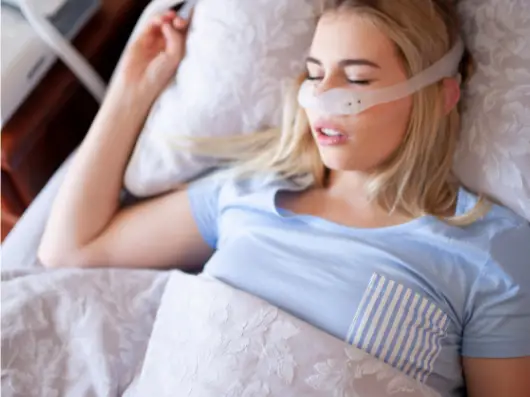
Sleeping with your mouth open can cause your mouth to become excessively dry on waking up. Our bodies can inhale and exhale via the nose and mouth to take the oxygen in and release carbon dioxide.
Therefore, a few people unknowingly keep their mouths open during sleep to keep up with their oxygen needs. However, several other reasons explain why someone breathes with their mouth open.
WebMD, for instance, mentions that a few people are born mouth breathers due to their natural structural makeup. However, other reasons may also cause you to breathe with an open mouth:
- Anxiety
- Asthma
- Allergies
- Sleep apnea
- Nasal congestion
Therefore, if you have sleep apnea, you’re more likely to sleep with an open mouth. Another source confirms the relationship between sleep apnea and mouth breathing. If you’re still unsure whether mouth breathing is making your mouth and throat dry during CPAP therapy, you can check for the following symptoms:
- Bad breath
- Loud snoring
- Hoarseness
- Tiredness
- Irritability
- Brain fog
Solution
A sleeping person is unconscious of most things happening around them. Therefore, sleeping with an open mouth is not really in your control. Because you’re almost unaware of what you do during your sleep, you can take a few steps before sleeping to prevent mouth breathing.
i) Use a Chin Strap
The Sleep Foundation recommends using a chin strap to prevent mouth breathing during sleep. Another study reveals that a chin strap encourages patients to continue their CPAP therapy.
These straps encircle your head and cradle your chin to keep your mouth closed. You can purchase one from an online brand. Alternatively, you can make one at home. Simply cut a leg of old pantyhose tights. Then, cross it from below your chin and tie it above your head.
ii) Try Mouth Tapping
People are increasingly using mouth tape to shut their mouths and enjoy a good night’s sleep. But does it work?
Sleep Foundation has something to back whether or not the mouth-taping solution works. The health institution highlights that mouth taping might be advantageous for treating snores and allowing people to breathe through their noses.
However, ensure to follow a few precautions before considering this treatment method. Mouth taping is not recommended to everyone. Therefore, it’s best to consult your health practitioner or CPAP therapist to know whether you can use one.
Secondly, you cannot use any tape for mouth taping. Instead, you must go for a specialized porous tape meant to be used for human skin. Avoid using masking or duct tape for the purpose.
Also, once you get your hands onto the right tape, use the following steps to tape your mouth:
- Wash your face thoroughly and pat dry
- Apply petroleum jelly or chapstick on your lips to keep the tape from sticking
- Roll the tape end and form a tab for quick removal in the morning
- Cut the tape just enough to cover your lips
- Turn your lips slightly inwards and apply the tape
iii) Use a Full Face Mask
A full face mask covers your nose and mouth, unlike a half mask that only covers your nose. This will allow you to sleep with a closed mouth and improve your CPAP therapy.
iv) Pay Attention to Your Tongue Position
Studies unfold that the best way to normalize saliva flow is to shut the opening between the pharynx and the oral cavity – the point where the pressure is raised for the CPAP air.
The research says you can close the opening by changing your tongue and touching it to the pillars. But, maintaining your tongue position can be challenging during sleep.
However, you can practice pressing your tongue against the roof during the day. Otherwise, you can create suction and push the tongue against your teeth and up the roof inside your mouth. Although it requires a little effort, the suction will keep your tongue in a fixed place. A few people find it easy to place their tongue at the back of the lower gum line. You can try it and see if it works for you.
2. Mask Leaks
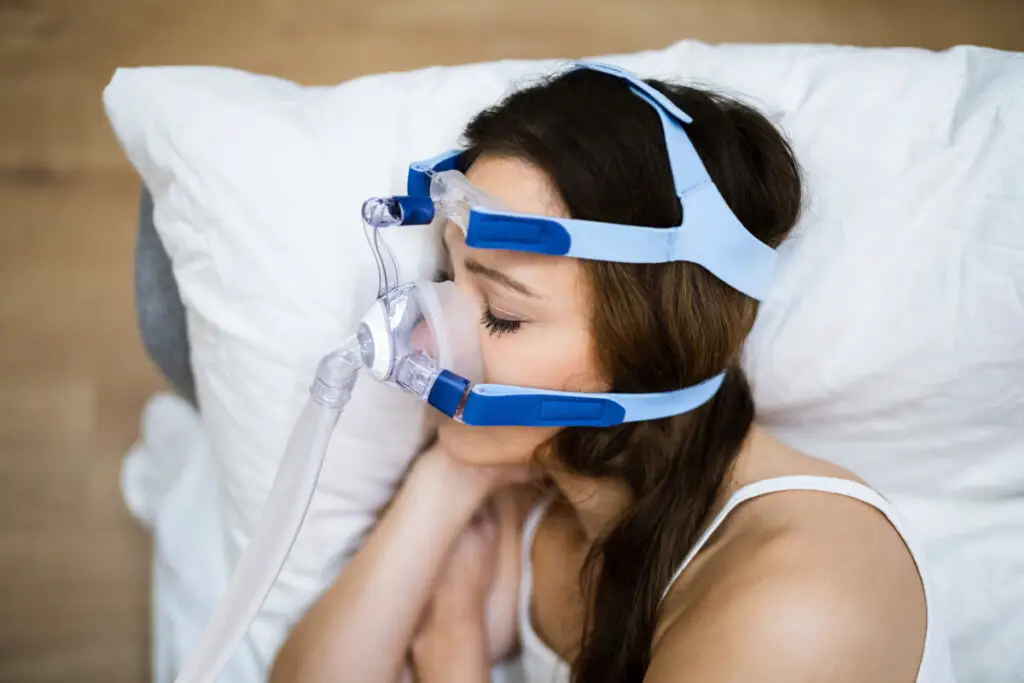
Mask leak is one of the most common causes of dry mouth during CPAP therapy. An ill-fitted or damaged mask causes humidifier air to escape. As a result, the dry room air gets in, leading to a dry mouth. However, you can always fix a mask leak to prevent dry mouth issues.
Solution
Because a CPAP mask has a soft silicone lining, it may form a crease. Pull the mask away from your mouth, observe the creases, and fix them if you find any. However, it’s easier to do this with air pressure off, as no air would be escaping the mask.
You can repeat this step several times until the silicone is set and sits firmly against your face. Here’s a quick video to guide you further about fixing a mask leak.
3. Obstructive Sleep Apnea
An article by ScienceDirect highlights that mouth breathing is common in patients with Obstructive Sleep Apnea. Therefore, while you may assume the CPAP machine is causing mouth dryness, the sleeping disorder per se could be the culprit.
People with sleep apnea are more likely to sleep with their mouths open than those who do not have one.
Solution
Because CPAP therapy helps reduce obstructive sleep apnea symptoms, perhaps you cannot ditch using the device. Besides, it might not even be causing the problem but your breathing habits. Therefore, the key is to take steps to sleep with your mouth closed. Refer to Reason 1: “You Sleep With Your Mouth Open,” to find the solutions for mouth breathing.
4. Nasal Congestion
If you have nasal congestion, you may likely sleep with your mouth open – hence the dry mouth. So, even if you breathe through your nose when sleeping, a stuffy nose can cause you to breathe through your mouth. As a result, you may notice a dry throat and mouth on waking up.
Solution
Reducing the symptoms of nasal congestion will allow you to breathe through your nose during CPAP therapy. As such, you’ll naturally get rid of dry mouth issues. WebMD highlights a few ways to minimize nasal congestion.
- Use a saline spray
- Take long hot showers to breathe the steam in
- Keep a humidifier in your room
Note that the source mentions various ways to reduce nasal congestion. However, we’ll have to stick to a few solutions given the CPAP therapy. For instance, you cannot place a warm wet towel on your face, as the source highlights, because you’ll have your mask on.
5. You’re Dehydrated

Dehydration occurs when there’s limited fluid quantity in your body. Several reasons go into why you might be dehydrated.
- You’re not drinking enough water.
- You have vomiting or diarrhea.
- You sweat excessively
So, the machine isn’t to blame if you’re dehydrated and on CPAP therapy.
Solution
Drink plenty of fluids during the day. The US National Academies of Medicine mentions adequate fluid intake for men and women.
- Around 2.7 liters (11.5 cups) for women per day
- Approximately 3.7 liters (15.5 cups) for men per day
So, staying hydrated will make up for CPAP machine dry mouth.
Pro Tip:
Try to drink plenty of water during the day. But, to avoid having to get up to pee in the night, just take small sips in the hours before bed. This way you stay hydrated and can get a more restful sleep.
6. Mask Is Worn Out
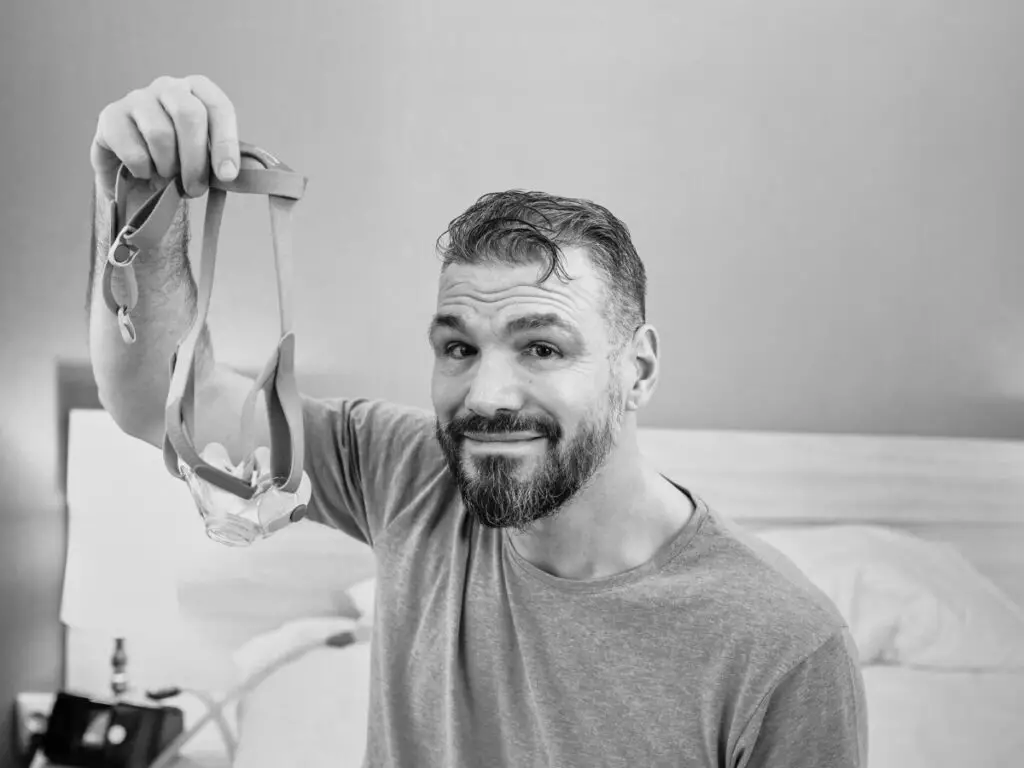
While air leaks are common in CPAP masks, other mask issues exist. For instance, your CPAP mask may simply be worn out and needs replacement. At this point, adjusting the mask or properly fitting it against your face won’t work because a worn-out mask may be causing leaks and mouth dryness.
Solution
You must replace your CPAP mask every 3 months. However, if the mask isn’t entirely damaged, you can go for component replacements – think CPAP tubing, mask cushions, or headgear.
Contact the manufacturer to learn about CPAP mask replacements. They’d offer you a quick replacement if you bought one from a credible brand. Once you have your mask, here’s how to wear one to prevent leaks and dry mouth issues.
- Put on the mask and adjust the headgear slightly. Do not wear your mask fully at this point.
- Lay down and adjust your pillow. Now, plug in the CPAP machine, connect it to the mask, and turn the device on
- Lift the CPAP mask slightly to fill it with air. Then, bring it back and make adjustments using the headgear straps. Make sure that the mask isn’t too tight.
- Minor leaks are normal at this point. You do not need to tighten your mask for the purpose. Instead, run your fingertips across the seam between your face and the cushion cover to eliminate the leaks.
- Twitch your nose, screw your lips up, and wag your jaw if you notice CPAP mask leaks below your nose
- For mask leaks near your eyes, try lifting it to fill it with the air and place it back on your face a little low on your nose bridge. Then, slide it back to your nose bridge and adjust it per your preferences. This hack will seal minor leaks.
If adjusting the new face mask seems daunting, ask your CPAP therapist to do it.
7. High Air Pressure On CPAP Machine
If you tried everything but still wake up with a dry mouth, high CPAP air pressure might be the cause. Your doctor may recommend a high CPAP air pressure to ensure your airways remain open as you sleep. However, more than the required air pressure can obstruct your salivary glands, preventing them from producing optimal saliva levels.
One needs normal saliva levels to prevent dry mouth. However, when you sleep with an open mouth or have a mask leak, the saliva evaporates, and CPAP air exasperates the drying.
Nonetheless, your saliva may evaporate even if there’s no way for it to evaporate. We all know that our salivary glands produce saliva, which travels into the mouth through salivary ducts at a specific pressure.
The saliva flow will be blocked when the pressure in your mouth exceeds the salivary duct pressure.
Solution
You must bring down the CPAP air pressure to prevent saliva blockages and dry mouth. You can always ask your CPAP therapist to lower the CPAP pressure. They may drop it down by increments, testing your sleep quality.
Alternatively, you can lower the pressure yourself. However, you must know how to track your events per hour to ensure low pressure isn’t causing sleep disruption or a rise in per-hour events.
On a side note, it is always best to consult your doctor and follow their recommendation about lowering the device’s air pressure.
8. Salivary Gland Issues
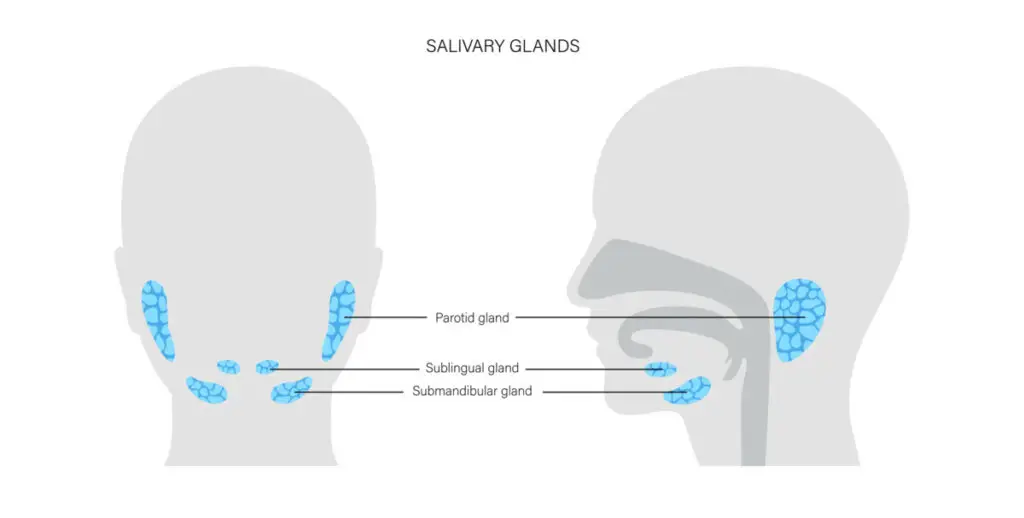
Salivary glands help moisten your mouth. However, an underlying condition may disrupt their normal function, leading to a dry mouth.
WebMD highlights that dehydration, blockages in tubes that drain saliva, fight or flight stress response, or chemotherapy may produce little saliva.
Solution
Several medications help treat salivary gland issues, allowing them to produce the required saliva levels in your mouth. However, make sure you talk to your doctor and follow their advice.
9. Improper Humidity Settings / Dry Air
Humidifiers are intended to reduce dry mouth caused due to a CPAP machine. However, not setting the humidifier properly prevents it from performing its job.
Solution
Make sure you adjust the humidifier settings to optimal levels. Ideally, you must set the humidity levels to 3 on your device. However, checking the device’s user manual is best to learn more about the humidification settings.
Also, consider moistening the CPAP air airflow.
- Humidifiers. If the dry indoor air is causing mouth dryness, it’s time to increase your room’s moisture levels. You can use a standard room humidifier for this purpose.
- Inline heat moisture humidifiers. These machines warm the air moving through the CPAP machine and help moisten it.
- Build-in humidifiers. Most CPAP machines come with built-in humidifiers. They allow you to adjust the temperature settings per your preferences.
- Heated tubing. A few CPAP devices use heated tubing to boost the temperature and moisture levels of the air, keeping your mouth from drying out.
10. Non-Heated Air
A non-heated CPAP air can also lead to a dry mouth. However, an added heat source can moisten the air you breathe during CPAP therapy.
Solution
Here are a few possible ways to warm the CPAP air and reduce dry mouth symptoms.
- Opt for a tubing cover or hose. You can use a tubing cover to make humidity delivery consistent. Alternatively, a PAP hose also locks the moisture, providing optimal moisture levels.
- Use heated humidification. Sleep specialists often recommend heated humidification as it prevents dry mouth by catering to your moisture needs.
11. Medication
A dry mouth is a common side effect of decongestants, antihistamines, and other medications. Cannabidiol (CBD) products may also cause your mouth to dry excessively. Therefore, the CPAP machine may not be the problem but the medication could be.
Solution
Never stop using your medication without your doctor’s recommendation. Talk to your health practitioner and inform them how certain medications impede your CPAP therapy. They’ll suggest alternative medications with minimal side effects.
What Humidity Level Should My CPAP Be Set At?
Initially, set your CPAP at a humidity level of 3. However, you can always adjust it by 0.5 to fix rainout or drying issues.
Your doctor may recommend a specific CPAP humidity level, given your unique sleeping habits. For instance, they may suggest high humidity levels if you breathe through your mouth when sleeping. Therefore, it’s best to talk to your doctor to learn about optimal humidity levels for your treatment.
What Temperature Should My CPAP Be Set At?
You can set your CPAP temperature between 60-86F.
Most CPAP machines feature Manual Climate Control settings and default temperature settings. Therefore, you might not need to adjust the temperature settings, to begin with.
Is It Normal to Have Dry Mouth With CPAP?
A dry mouth is one of the most common and troublesome side effects of CPAP machines, says research. Therefore, it is normal to have a dry mouth with CPAP.
That, however, does not indicate you shouldn’t take steps to prevent bothersome dry mouth symptoms. Refer to the “Reasons Why Your CPAP Is Drying Your Mouth Out” section to discover possible solutions.
